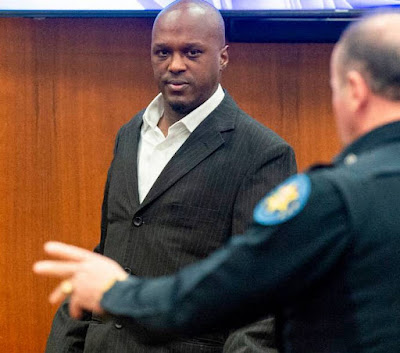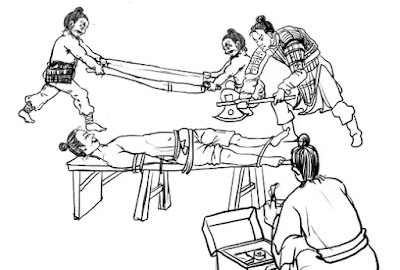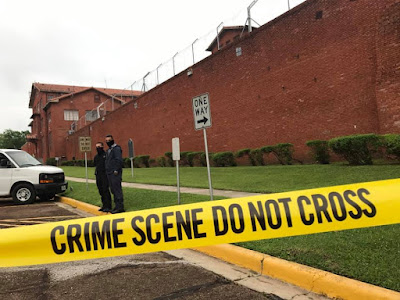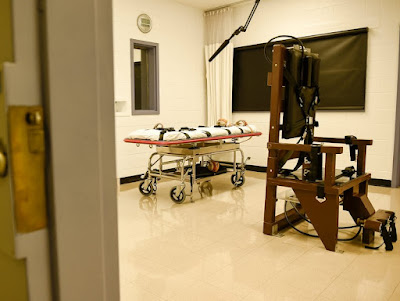 |
| Rodney Reed |
Rodney Reed's lawyers have filed an appeal citing multiple problems with his conviction and urging a stay and a re-trial - as execution looms just weeks away
The alarm was raised around dawn on 23 April 1996 when Stacey Stites failed to show up for her 3.30am shift as a produce stocker at a supermarket in Bastrop, near Austin, Texas.
That afternoon, the 19-year-old's body was discovered by the side of a country road on the outskirts of town. Nearby was a belt that appeared to have been used to strangle her, less than 3 weeks before her wedding day.
Rodney Reed was convicted of her murder and is scheduled to be executed on 5 March. His attorneys say they have new evidence that proves his innocence, the latest twist in an 18-year legal process his supporters believe is laden with errors, racism and corruption.
Last Thursday, 3 weeks before Reed was set to die by lethal injection in the Texas state penitentiary, his lawyers filed an appeal to the state's criminal appeals court citing multiple problems with his conviction and urging a stay of execution and a re-trial.
"3 of the most experienced and well-regarded forensic pathologists in the country ... have re-evaluated the case and determined that Mr Reed's guilt is medically and scientifically impossible,' they write, in response to a lower court's decision in November to deny new DNA testing of evidence including 2 beer cans found near the body.
That same month the US supreme court declined to review Reed's case.
'I don't believe'
Anti-death penalty advocates and Reed's backers gathered at a Quaker meeting house in Austin on Sunday to show solidarity with the 47-year-old on death row.
Among them was Stites' cousin Heather Stobbs. She said that while her family is split, she is convinced Reed is innocent and made contact with his relatives last year after researching the case.
"I don't believe, and I have other family members that don't believe, Rodney has anything to do with this," she said. "I think that [the case against him] was taking advantage of that he's black and it kind of sensationalised everything."
Reed was a black man having an affair in a small Texas town with a white woman who was engaged to a white police officer. Reed's brother, Rodrick, said that at the time it was "pretty rough" to be a black man living in the area. He said that after his brother's arrest, "I was pretty much blackballed in the county, got fired from my job, couldn't get a job in Bastrop, period, for years. A lot of people looked at me as if I had leprosy or something. They were programmed to believe that my brother did it. They were led astray."
He believes the investigation was botched and that the trial was a miscarriage of justice, in part because officials were too willing to believe in the guilt of a black man rather than an alternative suspect: Stites' fiance, the police officer.
"It took years for the truth to finally start coming out - other evidence, other witnesses, other things to start showing up. And then people started saying, 'Wait a minute, something's wrong here.' But in the beginning they took it as the gospel. Now 18 years later they see it was nothing but a big sham," he said.
Jury unconvinced of affair as a defence
Last week's court filing alleges that suspicion should fall on Stites' fiance, Jimmy Fennell. No longer a police officer, Fennell is in prison for kidnapping and sexually assaulting a woman while he was on duty in 2007. Investigators originally viewed him as a suspect but decided it was logistically impossible for him to have committed the crime. Reed's defence disputes that, arguing that there was no thorough investigation of whether Fennell had an accomplice, potentially one within the police department.
Months after the killing, police turned to Reed. His DNA was on and inside Stites' body. Police found a match because of a previous, unrelated, allegation of sexual assault against him. And when questioned about Stites, he initially claimed not to know her.
Timing and DNA analysis were crucial to the state's case. Prosecutors said that Stites was killed in the early hours of 23 April. The jury heard expert testimony that this indicated she had been sexually assaulted around the time of her murder, because of an incorrect assertion that sperm can only remain intact after intercourse for about 24 hours.
Reed's court-appointed attorneys failed to effectively challenge this view, which seemed to fit the prosecution's argument that Reed had intercepted Stites as she drove to work from the home in Giddings she shared with Fennell, then raped and killed her.
But in 2012, the key medical expert, Roberto Bayardo, said that the prosecution had misinterpreted his testimony in several ways, including his analysis of the timing.
"My estimate of time of death ... should not have been used at trial as an accurate statement of when ... Stites died," the former medical examiner told the Austin Chronicle.
In addition, the filing states, the science presented in the original trial was faulty. The new forensic pathologists - Michael Baden, Werner Spitz and LeRoy Riddick - "conclude that Ms Stites was actually murdered before midnight on April 22, 1996 and that she was placed in the location and position where she was found at least 4 hours after the murder."
That timeframe would place Stites at home with Fennell when she died, Reed's lawyers contend.
At trial in 1998 the jury were not convinced by Reed's defence: that he and Stites were having a secret relationship that, because it was interracial, might have caused a scandal if word got out. And the interpretation of the DNA evidence contradicted his claim that he had not had sex with Stites since about 2 days before she died.
Federal and state appeals courts have repeatedly affirmed the original verdict and not been persuaded of the credibility of witnesses who testified that they knew about the affair, but Reed's attorneys say that 2 new witness have come forward to confirm that Reed and Stites were seeing each other and that her relationship with Fennell was strained and she feared his violent temper.
Sister Helen Prejean, a longtime anti-death penalty activist, said at the Quaker meeting on Sunday that Reed's conviction is "one of the most outrageous" she has ever seen.
"It's riddled with almost, I think, every mistake that could be made in the justice system. And of course a black man paid for it," she said.
Source: The Guardian, February 17, 2015



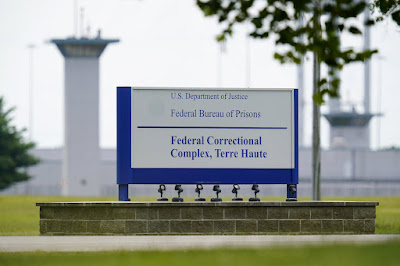
.jpg)
